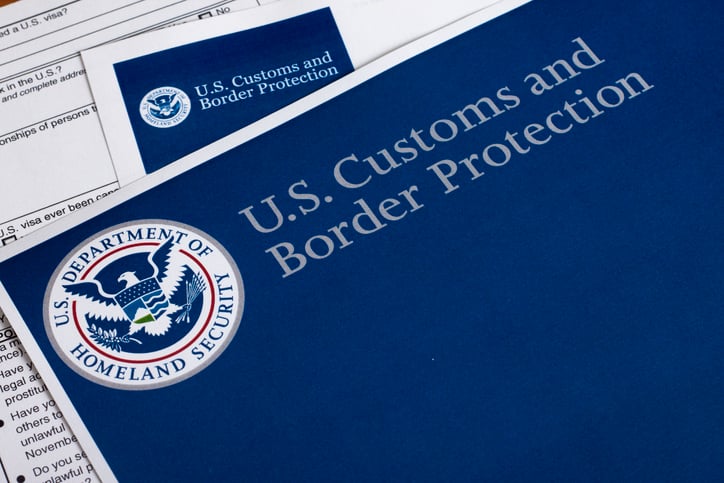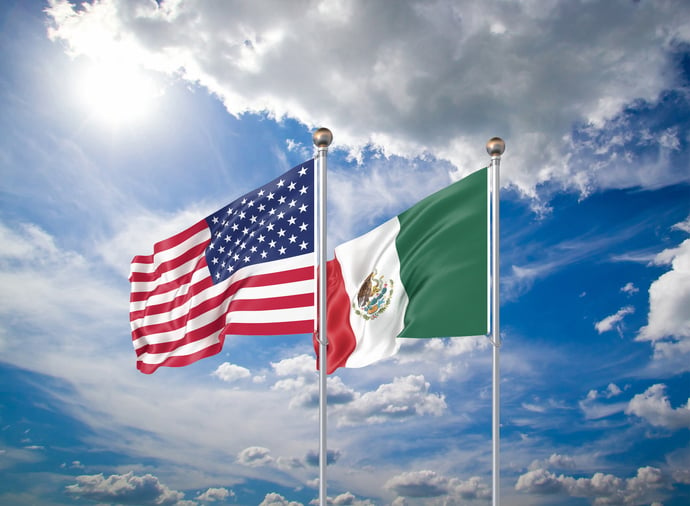Since the nineties, global trade has surged at a rate twice as fast as global gross domestic product (GDP). Recognizing the pivotal link between foreign investment, foreign trade, and economic growth, countries that successfully attract these components are positioned for economic advancement. However, the mere reduction of tariffs is not enough; the implementation of modernized customs systems is essential to cut costs and boost international competitiveness. This article delves into the Mexican context, where the Ventanilla Unica (VUCEM), Comprobante de Valor Electrónico (COVE), and electronic documents (eDocuments) play critical roles in transforming customs processes.
Customs Modernization in Mexico
In 2021, Mexican Customs (Aduanas) introduced a significant shift in the paperwork required for importing goods by creating a comprehensive database of all shipments into and out of Mexico. Importers of record must now file a "value declaration" digitally through the Ventanilla Unica de Comercio Exterior Mexicano (VUCEM) portal, replacing the traditional spreadsheet format. This innovative platform serves as a unique window for the international trade community, streamlining customs procedures and facilitating the declaration of the Commercial Invoice.
The Role of VUCEM
VUCEM, officially known as Ventanilla Unica de Comercio Exterior Mexicano, is a portal launched by the Mexican Customs Authority to create a comprehensive database of shipments through the implementation of the Ventanilla Unica de Comercio Exterior Mexicano (VUCEM) portal. It aims to streamline customs procedures and create a digital database, providing better control over imports and exports. With VUCEM, all import and export operations in Mexico become mandatory. The portal facilitates the declaration of the Commercial Invoice, generating a unique code known as COVE, or Comprobante de Valor Electrónico.
In order to embrace digital transformation and improve efficiency, importers of record are now required to file a 'value declaration' digitally through the VUCEM portal, replacing the traditional spreadsheet format. This transition not only simplifies the process but also eliminates the need for manual data entry, reducing the chances of errors and delays.
The VUCEM portal acts as a pivotal platform for scanning and storing various certificates and documents, known as eDocuments, that are declared in the Customs Entry Pedimento. By digitizing these crucial records, the Mexican Customs Authority ensures a more secure and organized approach to managing international trade operations.
Through the implementation of VUCEM, the Mexican Customs Authority aims to achieve multiple objectives. First, it strives to enhance the efficiency of customs procedures, reducing processing times and minimizing bureaucratic hurdles. Second, the Authority aims to promote transparency by establishing a centralized database that allows for easy access and monitoring of shipments. Lastly, the digital transformation facilitated by VUCEM contributes to cost reduction, as it eliminates paperwork, storage requirements, and manual processing.
By embracing technology, the Mexican Customs Authority aims to enhance operational efficiency, reduce redundancy, and facilitate a smoother flow of goods across borders. The utilization of VUCEM and its robust database not only simplifies the customs process but also allows for effective monitoring and control of shipments, ensuring compliance with international trade regulations.
The Mexican Customs Authority's implementation of VUCEM and its associated technologies is revolutionizing the way shipments are tracked and documented. Through the generation of unique codes, integration of electronic documents, and comprehensive database management, the authority is streamlining customs procedures and fostering a more efficient and transparent trade ecosystem.
Understanding COVE
"Through VUCEM, a unique code called Comprobante de Valor Electrónico (COVE) is generated for each shipment, seamlessly integrated into the official entry document known as 'pedimento.' This integration allows for efficient tracking and organization of shipments, ensuring accurate and up-to-date information within the database. The COVE serves as the basis for applying taxes and fees, including the General Import Tax (IGI).
In addition, it is essential to follow a specific procedure to obtain the COVE. The most common method involves declaring the Commercial Invoice to acquire the COVE code, which is then typed or declared on the Customs Entry Pedimento document. Utilizing VUCEM, all necessary certificates and documents, such as the NAFTA Certificate, are scanned and categorized as E-Documents to ensure Customs compliance. These meticulous steps guarantee a smooth and accurate shipping process to Mexico, with the COVE playing a crucial role in facilitating Customs procedures and tax assessments."<
Scanning eDocuments in VUCEM
The technological advancements don't stop there. VUCEM goes beyond traditional paper documentation by digitizing and centralizing electronic documents (eDocuments) such as certificates and permits necessary for customs compliance. These eDocuments are scanned, recorded, and assigned unique codes, similar to COVE, within the system, further enhancing the efficiency and accuracy of the database. These may include NAFTA Certificates or any permits necessary for customs compliance.
Empowering Stakeholders
The importation process in Mexico can be carried out by either the Importer of Records (IoR) or the Mexico Customs Broker Agency (Agente Aduanal). These entities are responsible for executing the necessary procedures involved in the importation. The Importer of Records in Mexico and the Customs Broker Agency are authorized to handle the importation process, ensuring compliance with all relevant regulations and requirements.
By entrusting the importation to either the Importer of Records or the Customs Broker Agency, individuals and businesses can navigate the complexities of the importation process with confidence, knowing that their imports will be handled efficiently and following Mexican customs laws. By embracing technology and establishing a robust database, the Mexican Customs Authority aims to enhance efficiency, reduce redundancy, and facilitate a smoother flow of goods across borders.
Mexico's embrace of technology through VUCEM, COVE, and eDocuments reflects a forward-thinking approach to customs modernization. By centralizing information, reducing paperwork, and promoting efficiency, these initiatives contribute to a more competitive and transparent international trade environment. Stakeholders, including U.S. exporters, are encouraged to understand and adapt to these changes, fostering collaboration with Mexican manufacturers, US trading partners, and customs brokers to navigate the evolving landscape of Mexico's customs processes. As the global economy continues to evolve, the role of digital platforms like VUCEM becomes increasingly critical in ensuring the seamless flow of goods and fostering economic growth.
Contact Visigistics today for your Mexico sourcing, cross border logistics, or 3PL in Mexico needs. Our team collaborates seamlessly with Mexican trucking companies, Mexican customs brokers, and US Customs brokers. Our commitment to efficiency, compliance, and reliability ensures a smooth flow of goods across borders, providing comprehensive logistics solutions tailored to the unique needs of our clients in the vibrant and dynamic Mexican market.





